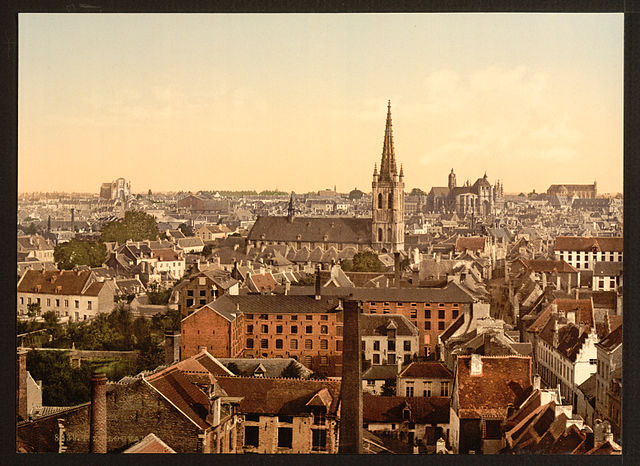The Old University of Leuven is the name historians give to the university, or studium generale, founded in Leuven, Brabant, in 1425. The university was closed in 1797, a week after the cession to the French Republic of the Austrian Netherlands and the principality of Liège by the Treaty of Campo Formio.
Jean de Bourgogne (John IV, Duke of Brabant), founder of the University of Louvain in 1425: Primus Academiae Conditor fuit Ioannes Quartus, Lotharingiae, Brabantiae, et Limburgiae Dux, Marchio Sacri Imperii.
Portrait of the Pope Martin V, author of the bulla confirming on December 9, 1425, the creation of the University of Louvain: à Johanne IV. Brabantiae Duce An. 1425. fundata et à Martino V. P. M. [pontifex maximus] An. seq. 5. Id. dec. Confirmata (Founded by John IV, Duke of Brabant, the year 1425 and confirmed by Martin V, Supreme Pontiff, the 5th day of the Ides of December following).
Albertus Risaeus (1510–1574), participated in the pro-Protestant movement at the University of Louvain. He fled to the United Provinces.
Michel de Bay (Michaël Baius) (1513–1589), professor and rector of the University of Louvain, founder of the doctrine of "Baïanisme", precursor of Jansenism.
Leuven or Louvain is the capital and largest city of the province of Flemish Brabant in the Flemish Region of Belgium. It is located about 25 kilometres east of Brussels. The municipality itself comprises the sub-municipalities of Heverlee, Kessel-Lo, Leuven proper, Wilsele, Wijgmaal and part of Haasrode and Korbeek-Lo. It is the eighth largest city in Belgium, with more than 100,244 inhabitants.
Leuven Town Hall in 2019
View over Leuven, late 19th century
The ruins of the Catholic University of Leuven's library after it was burned by the German army in 1914
Fonske was designed by Jef Claerhout.








